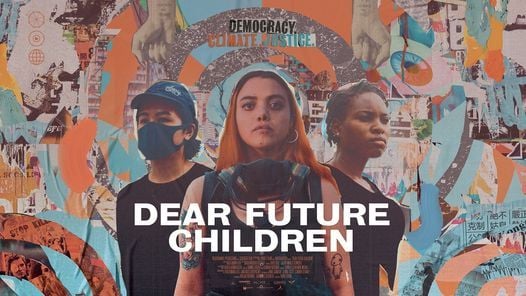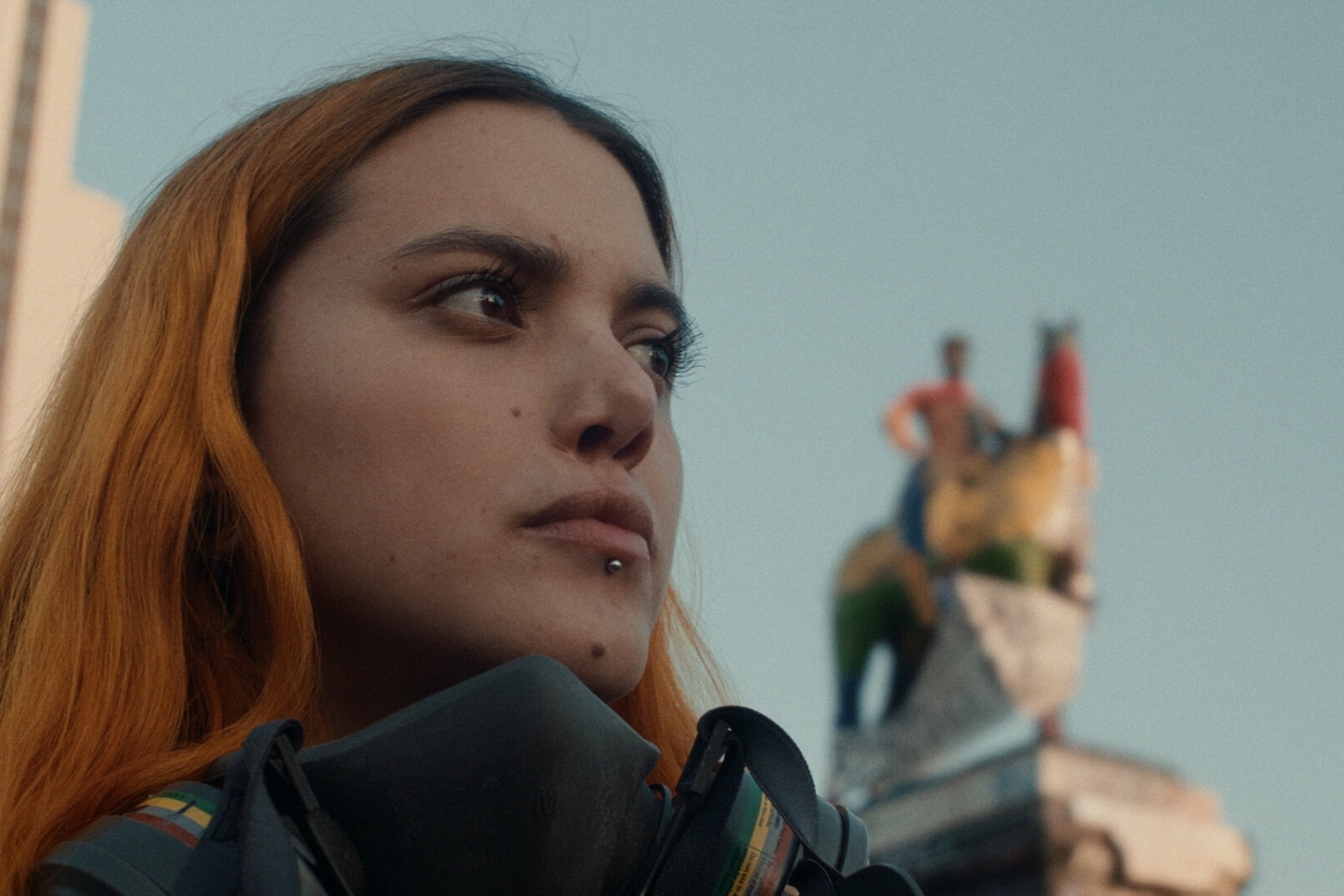We’re honoured that highly renowned film writer and lecturer Mike Catto (BBC Radio Ulster) has chosen to preview a selection of Docs Ireland titles. Next up is, ‘Dear Future Children’.
‘Dear Future Children’
Director Franz Bohm
89 minutes
Put simply, this is a feature length documentary about three young female activists in three parts of the world: Hong Kong, Chile and Uganda. It could have been any three or thirty three other parts of the world. Its message is clear. Oppression, deprivation, anxiety/fear exist everywhere. This, Franz Bohm’s first feature, was only released (to well deserved acclaim and awards) in January of this year, but watching this in August 2021, I felt obliged to check reliable websites on what the current situation is in the three chosen exemplar countries. And on the three main protagonists.
Things are not getting any better, whether it be pandemic related, climate aberrations and disasters that will be the New Norm or simply the intransigence of patriarchal regimes. And yet, this is a film about Hope.
This film was crowdfunded through Kickstarter. That, in itself is as important as the fact that the three activists are female. They are young, and crowdfunding, now a commonplace method of raising money for many causes, began only a few years ago driven mainly by young people.
Bohm is careful to show that the term Activism can have its ugly side, and even the positive and peaceful forms of Activism can be seen as negative, disruptive or dangerous by many, generally older, people.

When activists are seen as a ‘just’ a few individuals or as a small group, they can be, well, at best, tolerated. While this film concentrates on three highly motivated individuals, Bohm clearly and logically shows that in this modern era of mass communication and social media, activism can become more organised and more effective.
One of the three ‘case studies’ is that of Hong Kong. Under Carrie Lam and the imprimatur of Beijing, we see that peaceful pro-democracy protests by young people became seen by the authorities as politically subversive and, recently, such protesters are being called ‘terrorists’.
In Chile, as in many Central and South American countries, the young protagonist is fearful of social inequality (especially towards females), monetary inflation that punishes the deprived even more, and. of course, the mis-use of environmental conditions compounded by climate change.
In Uganda, as elsewhere in Africa, there are all the usual problems caused by ruling elites but also the negative effects of multi-national corporations on an already battered rural society. Bad as it was, the situation with severe drought AND, in places, severe flooding is worse since this film was being compiled from late 2019 onwards.
I have not named the three female protagonists, for they are not global celebrities like Greta Thunberg. They are individuals, they are intelligent. They are fearful, but they show quiet determination. They love their countries and are not intent on destroying them. What unites them is that they articulate simply and without polemic the commonality of them seeing their worlds, our world, destroying itself. This film (which ought to be seen not just in cinemas or on-line but shown in every school in the land) can only ever be a snap-shot. But, as the great photographer Henri Cartier-Bresson observed, a snap-shot can be THE Decisive Moment, revealing more than a million words could do. A must see film, which somehow is also already an archival piece of both a decisive moment and an ongoing struggle.
